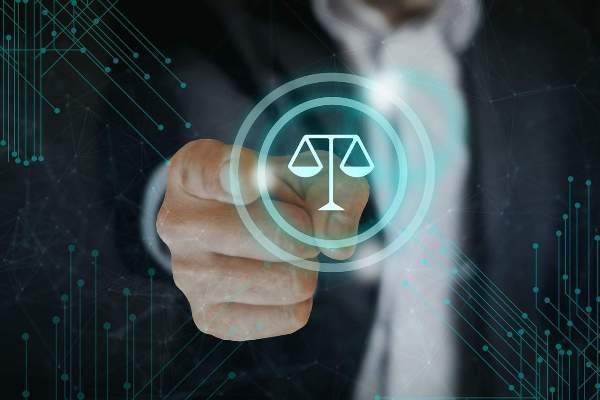As technology continues to advance, businesses are transforming their operations to keep up with the digital age. This digital transformation has also had a significant impact on copyright law. In this article, we will explore the effect of digital transformation on copyright law and what it means for businesses and individuals.
The Basics of Copyright Law
Before diving into the effect of digital transformation on copyright law, it’s important to understand the basics of copyright law. Copyright law is a set of laws that protect the rights of creators of original works, such as books, music, and movies. These laws give creators exclusive rights to their work, including the right to reproduce, distribute, and perform their work.
The Effect of Digital Transformation on Copyright Law

The rise of digital technology has made it easier than ever before to create, distribute, and access copyrighted works. This has led to a number of challenges for copyright law, including the following:
- Increased infringement: With the ease of digital reproduction and distribution, it’s become easier for people to infringe on copyrighted works. This has led to a rise in piracy and illegal sharing of copyrighted materials.
- New forms of creativity: Digital technology has also opened up new forms of creativity, such as remixes and mashups. These forms of creativity often involve using copyrighted materials, which can present challenges for copyright law.
- New business models: The rise of digital technology has also led to new business models that rely on the distribution of copyrighted materials, such as streaming services. These new business models have raised questions about how copyright law should apply in the digital age.
The Role of Copyright Law in Digital Transformation
Despite these challenges, copyright law still plays an important role in digital transformation. Copyright law provides creators with the incentive to create new works by giving them exclusive rights to their work. This, in turn, promotes innovation and creativity.
However, copyright law must also adapt to the digital age. This means finding ways to address the challenges posed by digital technology while still promoting innovation and creativity. Some ways that copyright law can adapt to the digital age include:
- Creating new exceptions and limitations: Copyright law can create new exceptions and limitations that allow for certain types of uses of copyrighted materials, such as fair use.
- Encouraging licensing: Copyright law can encourage licensing of copyrighted materials, which can help ensure that creators are fairly compensated for their work.
- Developing new technologies: Copyright law can also encourage the development of new technologies that help protect copyrighted materials, such as digital watermarking and encryption.
The Bottom Line
Digital transformation has had a significant impact on copyright law, presenting a number of challenges for businesses and individuals. However, copyright law still plays an important role in promoting innovation and creativity in the digital age. By adapting to the challenges posed by digital technology, copyright law can continue to provide creators with the incentive to create new works while also protecting their rights.











Comments